Human - Season 1

Season 1

Episodes
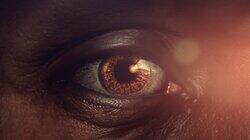
The First of Us
The extraordinary story of how the human species, Homo sapiens, first emerged, where the discoveries of recent years are revolutionising the understanding of humanity's origin story.
In Morocco, it's revealed that Homo sapiens are 100,000 years older than previously thought. The species was nearly wiped out by violent climate change but clung on against the odds. And in a cave in Botswana, evidence of complex rituals reveal how Homo sapiens culture was flourishing in ways that still shape humanity today.
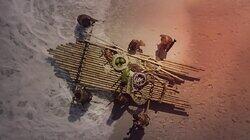
Into the Unknown
Following early Homo sapiens's ancestors as they step out of Africa and venture into the wider world, heading into areas inhabited by other human species.
Around 60,000 years ago, a small group of Homo sapiens migrated into the Middle East. Recent DNA discoveries reveal that every human alive today whose origins are from outside Africa are descendants of this group. In just a few thousand years, they spread across the globe.
Paleoanthropologist Ella Al-Shamahi, visits the rainforests of Sri Lanka and discovers how Homo sapiens became the only human species to make the unforgiving jungle its home, using innovative techniques like hunting monkeys with arrowheads made from monkey bones. On the Indonesian island of Flores, she finds out about another human species, the tiny Homo floresiensis, and asks how our ancestors became the first human species to make the 60,000 mile journey across open ocean to Australia.

Last Humans Standing
Shocking new insights into the demise of modern humans' sister species, the Neanderthals, Homo sapiens's possible role in their downfall and how it become the last human species on Earth.
Around 55,000 years ago, Homo sapiens ventured into Europe — only to find it was already occupied by Neanderthals who had lived there for almost 400,000 years. Ella Al-Shamahi, finds out just how close the two species became when she sees evidence of interbreeding. She reveals how during the Ice Age in Europe, Neanderthals held the evolutionary upper hand with a physiology better built for the cold. Yet against the odds, by around 30,000 years ago, Homo sapiens were the only species left.
As she explores the demise of Neanderthals, Ella visits the ‘tunnel of bones' in El Sidrón cave, Spain where archaeologists have found the remains of 13 Neanderthal family members who were murdered and cannibalised.
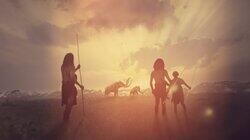
Discovering the Americas
During the height of the Ice Age, one of the coldest times humanity has ever known, Homo sapiens steps into the last habitable continent on the planet: the Americas.
Ella Al-Shamahi discovers how humans were confronted by ferocious 10-foot tall prehistoric bears in this new land and explores the daredevil hunting techniques used to take them down. Deeper into the interior of the North American continent, Ella traces fossilised footprints, possibly of a mother and her child, who were among the first to set foot in North America.
She learns how the humans who lived here hunted vast herds of Ice Age mammoths and giant sloths, until a changing climate and innovative hunting techniques combined to push them to extinction. Forced to adapt, humanity's ancestors pioneered new ways to control nature as farming emerged to shape the world.
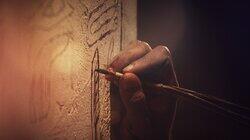
A Great Gamble
Around 12,000 years ago, as the Ice Age finally thaws, humanity makes a dramatic shift - abandoning nomadic life for permanent settlements.
In Turkey, Ella Al-Shamahi visits the world's oldest temple, Gobekli Tepe, and one of the largest early towns, Catalhoyuk - a prototype in urban living, with no streets and honeycombs of dwellings accessed through the roofs. But living in densely populated towns, with livestock alongside them and dead ancestors buried beneath their houses, brought new challenges: disease and evidence of unrest and brutal violence.
In Egypt, Ella finds out how cities began to thrive rather than collapse. And in a turquoise mine in the Sinai desert, she discovers how migrant workers were responsible for creating the first alphabet.
Recently Updated Shows

Bachelor in Paradise
Some of The Bachelor's biggest stars and villains are back. They all left The Bachelor or The Bachelorette with broken hearts, but now they know what it really takes to find love, and on Bachelor in Paradise they'll get a second chance to find their soul mates. Contestants will live together in an isolated romantic paradise in Mexico and explore new romantic relationships.
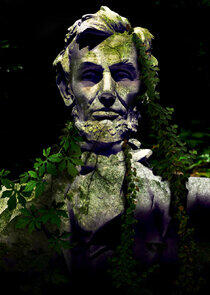
Life After People
What would happen to planet earth if the human race were to suddenly disappear forever? Would ecosystems thrive? What remnants of our industrialized world would survive? What would crumble fastest? From the ruins of ancient civilizations to present day cities devastated by natural disasters, history gives us clues to these questions and many more in the visually stunning and thought-provoking special, Life After People.

The Institute
When 12-year-old genius Luke Ellis is kidnapped, he awakens at The Institute, a facility full of children who all got there the same way he did, and who are all possessed of unusual abilities. In a nearby town, haunted former police officer Tim Jamieson has come looking to start a new life, but the peace and quiet won't last, as his story and Luke's are destined to collide.

Beat Bobby Flay
In order to Beat Bobby Flay, you have to get to him first. This new series is the ultimate throwdown-showdown... . Three culinary masters, each with their own signature dish, a dish that they'd stake their reputations on, travel to New York for the chance to challenge Bobby Flay to a head-to-head cook-off of their specialty. But first, these contenders must battle it out to see who has the culinary prowess to ultimately go one-on-one against Bobby on his own turf.
